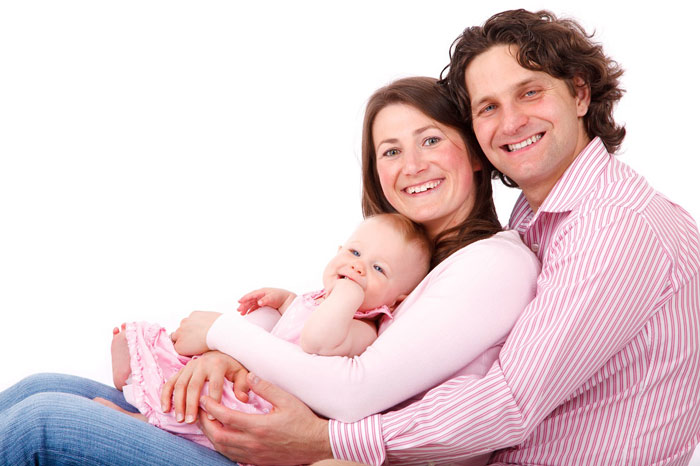Innocent Phrases You Could Offend New Parents with
Being a parent is definitely hard work — the hardest as some people may say. Just imagine: all of a sudden, you get a small screaming baby who can’t even raise their head, and whose well-being you need to take care of 24 hours a day, seven days a week.
Although additional costs, lack of sleep, and a long list of new responsibilities can be a rather difficult challenge, in many cases it is the well-wishing tips of others that make parenting one of the most difficult tasks on the planet.
Therefore, regardless of whether you have children or not, try to refrain from telling your friends any of the phrases listed below, if they have given birth to a baby recently.
Yes, they seem friendly and quite common, but, in fact, there is usually more harm from them than good.
“You look exhausted”
A healthy newborn usually wakes up every couple of hours every night. Thus, it is more than likely that parents do not just look exhausted, they are truly exhausted.
Also, if you are tempted to say some sympathetic words in a conversation with young parents, like “I also slept just a few hours last night”, think about it twice. A 2015 study published in the Sleep magazine showed that intermittent sleep has even more negative impact on well-being and mood than a short deep sleep. Therefore, it is prudent to leave these comments to yourself for the time being.
“Sleep while the baby is sleeping”
This suggestion is often given by your benevolent friends and family members, but “sleep while the baby is sleeping” is a recommendation that is not so easy to put into practice.
The fact is that many parents use the time while their child is sleeping to do other important things, such as cooking and eating, showering, working, cleaning, so this advice is unlikely to be as useful as you think.
“You’re so lucky to stay at home now.”
Of course, it seems that sitting at home with a baby is much easier than going to work, and the only reason one of the young parents decides to stay at home after giving birth is their unwillingness to work.
However, before starting to secretly envy your “happy” acquaintance, remember that caring for a child is a 24-hour job that does not bring any salary, requires dealing with lots of screaming and tons of bodily fluids, and does not imply any career growth. Therefore, it’s better to keep your opinion to yourself, if you are going to say how “lucky” these stay-at-home parents are.
Everything that starts with “You must…”
The idea that a parent is simply longing for your advice on how to bathe, hold, or feed the baby, especially when these sentences begin with “You must…,” is wrong.
Do not give advice until the parents ask for it themselves. If what he or she does, poses no immediate danger to the child, you’d better keep silent about the recommendation that you heard from someone or read somewhere.
“Your baby cries so much – is that all right?”
As a rule, almost every baby cries – and in many cases this cry never stops, even if it is fed, hugged, and adored. Although it may seem to you that mentioning the baby’s crying is just a statement of fact, to many parents it may seem like criticism. Remember that they cannot control it.
“The baby does not look like you at all!”
Isn’t it great to hear that a child has a mother’s smile or grandfather’s eyes? Of course! However, refrain from telling people that their child is not like them. This may not only seem rude – for non-biological parents (and sometimes people do not advertise the case of adoption) such a statement can be very painful.
“Cheer up!”
Has anyone ever changed their mood in an instant just because someone else suggested doing so? When a newly-made father or mother expresses sadness, fatigue, or anxiety, let them know that you hear what they say and empathize with them.
The comments, intended to encourage the parents, can have the opposite effect, as well as enhance their feelings of anxiety and isolation.
“This is pure waste of money”
Of course, you might think that a fancy stroller, a baby monitor or any other “baby stuff” are a waste of money. But does this mean that you should voice these thoughts to the new parents who possess these things (and spend a lot of money)? Definitely not.
Firstly, many of these expensive accessories must have been gifts. Secondly, some of them are really very useful. In addition, many people simply love to buy children’s stuff, and this is not something you should be ashamed of.
After all, everything that makes their long days and sleepless nights a little easier is positive, isn’t it? Therefore, do not spoil their pleasure in shopping.
“Let me know if you need anything.”
Although this may seem like a good suggestion, telling this to a parent is unlikely to be as helpful as you think. Many fathers and mothers do not even know what they need and are probably too tired to understand and then formulate it.
Instead, offer specific ways how you are ready to help, as well as specific time when you can provide your assistance: whether it is looking after the baby, while the new parents are resting, or ordering dinner so that they do not have to cook.




